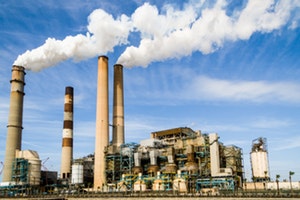Climate scientists call on Prime Minister to leave zero emissions legacy
31 May 2019

A group of leading climate scientists, including Professors Sir Brian Hoskins, Keith Shine, and Dame Julia Slingo from the University of Reading’s Department of Meteorology, have written to Prime Minister Theresa May calling for her to make climate change action her legacy by setting a net zero greenhouse gas emissions target into national law.
Here is the text of the letter:
Dear Prime Minister,
As a group of Britain’s leading climate scientists, we are writing to recommend that your government swiftly sets into national law a Net Zero greenhouse gas emissions target, as advised by the Committee on Climate Change.
The UK has been among the world’s leaders on climate change ever since Margaret Thatcher warned three decades ago that humankind was “conducting an uncontrolled experiment with the atmosphere.” As a result, our record on reducing greenhouse gas emissions while growing the economy is the best among the major industrialised nations. Other governments are using the Climate Change Act as a model for their own legislation.
However, science is unequivocal that avoiding dangerous climate change means not just reducing carbon emissions but bringing them to net zero. Last year the Intergovernmental Panel on Climate Change, on whose landmark reports many of us have worked on, concluded that governments need to embark now on a course of reaching Net Zero by mid-century at the latest in order to stand a reasonable chance of delivering what was pledged in the Paris Agreement.
Accordingly, your Government asked the Committee on Climate Change for new advice on the UK’s appropriate contribution. The Committee concluded – in our view correctly – that the UK’s fair contribution entails bringing its greenhouse gas emissions to net zero by mid-century at the latest. The Committee noted that this can and should be enacted quickly, by amending through Statutory Instrument the existing 80% reduction target in the Climate Change Act.
Following the Paris Agreement and last year’s IPCC report, many countries are adopting net zero targets compatible with the Agreement’s target of limiting global warming to 1.5 degrees Celsius. But as yet, no major economy has written such a target into national law. To do so now would be to make a powerful statement of global leadership on climate change worthy of the tradition established by Mrs Thatcher 30 years ago when she became the first leader of a major nation to call for a United Nations climate change treaty.
A net zero target is what science concludes is necessary to meet the Paris targets; and to set one in law swiftly, in line with the expert advice commissioned by your Government, is within your gift. To do so would be an act of global importance for future generations, and a worthy legacy.
Yours sincerely,
Myles Allen FInstP, Professor of Geosystem Science in the School of Geography and the Environment and Department of Physics, University of Oxford
Joanna Haigh CBE FRS, Emeritus Professor of Atmospheric Physics, Imperial College London
Jason Hall-Spencer, Professor of Marine Biology at the Universities of Plymouth and Tsukuba (Japan)
Gabriele Hegerl FRS, Professor of Climate System Science, University of Edinburgh
Sir Brian Hoskins CBE FRS, Chair Grantham Institute, Imperial College London and Professor of Meteorology, University of Reading
Chris Rapley CBE, Professor of Climate Science, University College London
John Shepherd CBE FRS, Emeritus Professor of Earth System Science, School of Ocean & Earth Science, University of Southampton
Keith Shine FRS, Regius Professor of Meteorology and Climate Science, University of Reading
Dame Julia Slingo FRS, Former Met Office Chief Scientist, Visiting Professor at Universities of Bristol, Exeter and Reading
Julienne Stroeve, Professsor of Polar Observation and Modelling, University College London
Andrew Watson FRS, Royal Society Research Professor, University of Exeter
Gail Whiteman, Rubin Chair in Sustainability, Lancaster University
Phil Williamson, Honorary Reader in Environmental Sciences, University of East Anglia
Eric Wolff FRS, Royal Society Professor of Earth Sciences, University of Cambridge
